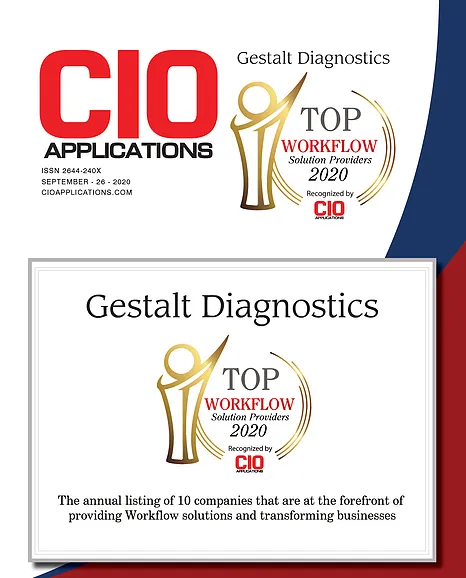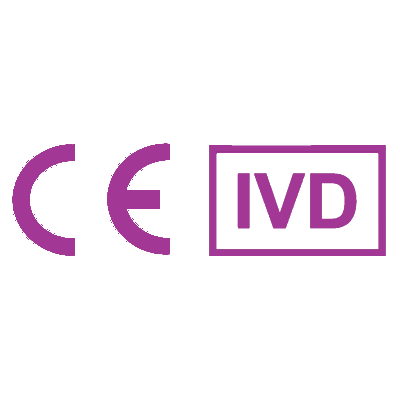Gestalt's Clifford Interviewed for being named in Top 10 Workflow Solution Providers
Bringing Pathology Laboratories into the Age of Digital
Atypical pathology laboratory workflow is a complex, lengthy, and complicated series of events, which requires a manual review of tissue specimen on glass slides to render a diagnosis. Digital pathology has been successful in overcoming the numerous limitations associated with traditional pathology. By using a computerized, image-based (digital slides) system for managing and interpreting information, technicians can now deliver rapid and accurate test results worldwide. Gestalt, a digital pathology solution provider, is committed to bringing anatomic pathology into the digital age. The company provides enterprise solutions and services that help transform anatomic pathology laboratories from glass slides, microscopes, and couriers, to a more automated, electronic digital workflow. In an inter-view with CIO Applications, Lisa Jean Clifford, COO and Chief Strategy Officer, of Gestalt Diagnostics, sheds her insights on digital pathology and how their solution brings the conventional pathology workflow to the electronic digital workflow. She has over 20 years of experience in high-tech industries, nearly 3/4 of which is specifically in healthcare tech.
Can you give me a brief overview of Gestalt Diagnostics?
Gestalt Diagnostics leading product is PathFlow, a universal, easy to use digital platform for pathology laboratories. Through our platform, we enable Pathologists to interpret, and di-agnose patient cases quickly, efficiently, and in a fully automated fashion. Our company also provides top-notch IT services and support to include consulting services, staff augmenta-tion, and interfacing, along with custom development work for our clients. Gestalt’s development philosophy is based on an open, interoperable architecture. For that reason, we are application and vendor agnostic and work closely with multiple vendors in the industry. By working with numerous applications, we incorporate all of the relevant case information, providing a seamless workflow for the Pathologist. What are some of the challenges your clients face and how do you enhance their workflows with your solutions? We serve a diverse range of clientele, which includes hospitals, integrated health networks, commercial laboratories, reference laboratories, midsize laboratories, physician owned la-boratories, and more. The biggest challenge for our clients is the ability to support clients and patients in multiple and remote locations. For many
clients, implementing the best of breed solutions to enhance their workflow is an uphill challenge. In a laboratory there are two levels of workflow; the technical workflow, and the pathologist’s workflow. Technical workflow occurs between the instruments, specimens, and
technicians. Pathologists do not want to be bogged down by the laboratory’s technical workflow like they are in a typical laboratory information management solution. Our solu-tion elevates the pathologist to be on top of that workflow by providing a unique, fully au-tomated, and completely integrated environment. Through our platform, we provide the Pathologist with access to their case information, including patient data, patient history, whole slide images, integrated natural language processing such as voice recognition, AI and Image Analysis Algorithms, report templates and we even support manual, glass cases within the same, unified workflow. Our automated report templates, or ability to integrate directly with the lab’s LIS reporting application supports automated reporting, to include
synoptic reports. We use artificial intelligence and image analysis algorithms to augment such processes. The single window approach enhances the workflow and also the working environment. This approach enables the pathologist to diagnose a patient and sign out their cases faster and more efficiently than before. Above all, digital pathology increases the ac-curacy and the safety of the diagnosis.
What are the features and functionalities of the platform?
Our product is web-based and we offer hosting for the entire platform for the client in the cloud. For that reason, the clients do not have to worry about OS updates or IT support. However, we also allow the clients to host the platform themselves on premises, if that is the model they prefer. Asa web-based application, our PathFlow solution enables true global access for pathologists 24 hours per day, 7 days per week with a unique, secure login for each user. The platform enables interoperability, communication across time zones and across countries. We
have an image management solution that integrates with multiple vendor’s scanners and to do so simultaneously. This provides, the labs with the ability to de-termine which scanners they feel are the best fit for their use cases in each laboratory. Our image management system captures the images from the scanner and matches them with the appropriate case through integration with the laboratory’s ordering system (LIS, HIS, EMR, etc.). We provide automatic case matching and automatic case routing to a pa-thologist’s worklist. The robust, automated case routing is based on over 60 configurable rules. The laboratory can define and adjust these rules based on their preferences. We offer workflow routing based on parameters like work load balancing, scheduling, licensure, sub-specialty, customer preference, and pathologist’s preference. We provide the relevant case information, clinical history including prior visit history, and any images associated with ear-lier visits. We integrate artificial intelligence and image analysis algorithms for specific can-cer detection data directly within the pathologist’s cockpit for use during the case workflow. Moreover, we offer integrated templates for reporting, and voice recognition capability. We also integrate the platform with synoptic reports so that the information is captured automatically while generating the final report.
Can you tell us a recent customer success story? A large laboratory that offers different contractual work for their customers, including TC, PC, and Global work, approached us to support their disparate workflows into one single platform. The PathFlow solution provides our customer with the ability to provide a single platform for each workflow and provides their pathologists with access to their cases re-gardless of their location which includes multiple laboratories, states, and the US Virgin Isl-ands in this instance. Their remote customers are able to access their cases with their virtual slide tray the same day vs. having to wait for the glass slides to be shipped.
What are some of the key differentiating factors for Gestalt Diagnostics?
Gestalt Diagnostics enjoys the challenge of addressing unique workflows and maintains an entrepreneurial approach to addressing each customer’s need. We have an advanced tech-nology staff who are continually innovating new features requested by our customers as standard capabilities or custom applications to seamlessly integrate specific functionalities that enhance their workflows. In addition, the experience and expertise of our IT services staff is incomparable. Our IT staff is able to think out of the box and collaborate with the client’s IT department to help them enhance their workflows, support legacy applications and build automated reporting. We also provide interim CIO and staff augmentation in addition to consulting services.
What is the next big step for your company?
We are continuing to push the technology around AI and image analysis and we are conti-nually augmenting our platform by adding more features and functionalities. We are also looking to develop new applications that are relevant to the healthcare industry, such as BugHub™, our wellness tracking app for screening and monitoring of health symptoms such as for Covid-19. At present, our applications include clinical, research and education mod-ules in a single unified and truly interoperable platform.
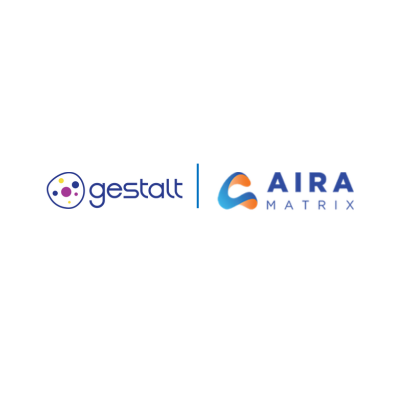
March 21, 2025 – Mumbai, India and Spokane, Washington – AIRA Matrix, a leading innovator in AI-driven QC solutions, and Gestalt, an industry leader in IMS and digital pathology, have formed a strategic partnership to bring AIRA Matrix’s advanced AI solution, AIRAQC, to Gestalt's PathFlow. This collaboration marks a significant step toward enhancing diagnostic precision and efficiency in laboratories worldwide. AIRAQC, powered by cutting-edge artificial intelligence, streamlines quality control processes, enabling faster and more accurate analysis in pathology workflows. By integrating AIRAQC with Gestalt's workflows, pathologists will gain access to a seamless, AI-enhanced experience designed to optimize diagnostic decision-making. "We're thrilled to partner with Gestalt to expand the reach of AIRAQC and deliver transformative AI capabilities to pathology labs," said Marco Comianos, Head of Commercial Operations - US., AIRA Matrix. "This collaboration is a testament to our shared commitment to advancing pathology through innovation." “The partnership between AIRA Matrix and Gestalt represents a continued effort to drive progress in pathology by leveraging technology to meet evolving healthcare needs. Together, our companies aim to empower laboratories with state-of-the-art tools that improve diagnostic accuracy, quality and meaningful metrics from the start of the diagnostic process” says Lisa-Jean Clifford, Gestalt COO & Chief Strategy Officer. About AIRA Matrix: Delivers artificial intelligence solutions for healthcare and life sciences applications. Our innovative products and services drive efficiency, enhance diagnostic accuracy, and provide data-driven insights from digitally scanned images. Our comprehensive AI-driven suite for drug discovery and development, streamlines pre-analytical quality control, facilitates tissue triage, and optimizes safety and efficacy assessments, accelerating breakthrough discoveries. Our healthcare portfolio offers diagnostic, prognostic, and predictive tools that facilitate risk stratification and enable personalized therapy planning, thus improving treatment outcomes., visit www.airamatrix.com. About Gestalt Diagnostics: Gestalt transforms pathology through an intelligent, configurable, vendor-neutral, and AI-driven digital workflow that provides true interoperability enabling pathologists to diagnose* diseases faster and more efficiently. Our PathFlow® solution consists of professional, education, and research modules for ease of mixing and matching the digital needs of your facility in a single solution, freeing pathologists from tedious, repetitive, and manual tasks allowing them to focus on their expertise, providing invaluable experience where it matters most. *Following the LDT process in the US. It is under CE-IVD marking for use in Europe.
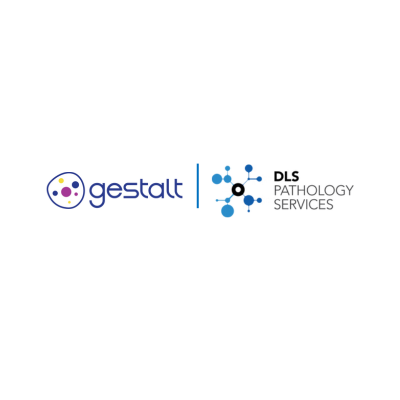
March 21, 2025 – Spokane, Washington – Gestalt, a leader in AI driven digital pathology solutions, and DLS Pathology Services, a reseller and consultation company providing expert direction on digital adoption and services are excited to announce a global reseller partnership. This collaboration brings Gestalt’s acclaimed digital platform directly to pathologists and healthcare entities in Australia and other territories. This reseller agreement continues Gestalt’s expansion into other countries through the locally focused expertise and experience of DLS Pathology Services. In this arrangement, DLS will be providing the sales and first line support of Gestalt’s digital pathology capabilities, ensuring that pathologists have the ability to leverage their consultations for pathology as a service provider and support. "We are excited to join forces with DLS Pathology Services to bring our industry leading digital pathology solutions to a wider global audience," said Lisa-Jean Clifford, COO & Chief Strategy Officer, Gestalt. "This partnership enables us to combine our innovative platform with DLS's local expertise, ensuring pathologists in Australia and beyond have the tools and support they need to provide exceptional diagnostic services.” “Gestalt provides the ideal platform for providing digital pathology services. Its ability to host and stream DICOM images at low-cost, with an intuitive interface for pathologists, helps us service clients at any scale”, says Dr. Jeremy Parry, Director, DLS Pathology Services. “I have been in the digital pathology business for more than a decade and tried pretty much all the Cloud platforms out there. With its speed, user-friendly interface and innovative use of DICOM, Gestalt is the best of the lot.” For more information about this partnership and the respective solutions, please visit Gestalt at booth #934 during USCAP March 23-26, 2025. About Gestalt Gestalt Diagnostics transforms pathology through an intelligent, configurable, vendor-neutral, and AI-driven digital workflow that provides true interoperability enabling pathologists to diagnose* diseases faster and more efficiently. Our PathFlow solution consists of professional, education, and research modules for ease of mixing and matching the digital needs of your facility in a single solution, freeing pathologists from tedious, repetitive, and manual tasks, allowing them to focus on their expertise – providing invaluable experience where it matters most. About DLS Pathology Services Our mission is to support and develop local pathology services, no matter what the budget or location. Recent progress in digital technologies means that no pathology service should be limited by remote geographical location, lack of local support, limited budgets or the shortcomings of traditional glass-slide (analogue) pathology workflows. At DLS Pathology Services, we believe that every medical service, with the appropriate support, can grow and flourish to support the needs of its local community. DLS stands for Deep Learning Solutions which underlines the Company's aim of developing and utilizing deep-learning and other machine applications as much as possible for the benefit of clients. To learn more, visit www.dlspath.com . *Following the LDT process in the US. It is under CE-IVD marking for use in Europe.
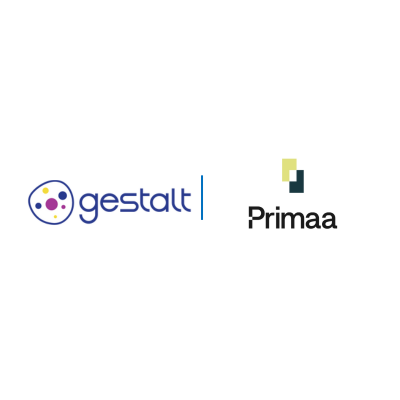
March 19, 2025 – Spokane, Washington and Paris, France – Gestalt, a leader in digital pathology innovation, and Primaa , a MedTech pioneer specializing in AI-based dermatopathology solutions, are thrilled to announce a strategic partnership. This collaboration brings Primaa’s cutting-edge AI technology for skin cancer diagnosis directly into Gestalt’s acclaimed PathFlow platform. Together, they aim to create seamless workflows for pathologists while upholding the highest levels of diagnostic precision and patient safety. Gestalt’s PathFlow is known for its versatility, supporting primary diagnoses*, education, resident training, and research workflows. By integrating Primaa’s advanced AI algorithms, the platform now empowers pathologists with enhanced tools for detecting and quantifying tumor biomarkers in skin tissues. This integration allows pathologists to utilize AI-driven algorithms that detect critical biomarkers in skin lesions. Through the combined offering can automatically identifiy lesion types—including melanoma, squamous cell carcinoma, and basal cell carcinoma—and provides detailed measurements of lesion dimensions and margins. The solution also detects automatically all perineural invasions and all mitosis objects in the melanoma. Additionally, the system prioritizes high-risk cases for immediate review, ensuring timely and accurate diagnosis. "Partnering with Primaa to integrate their skin AI technology into PathFlow underscores our dedication to providing pathologists with state-of-the-art tools,” said Lisa-Jean Clifford, COO & Chief Strategy Officer of Gestalt. “This partnership represents a pivotal advancement in enhancing workflow efficiency and delivering superior patient care related to skin cancer." Fanny Sockeel, CEO at Primaa, added, “Our collaboration with Gestalt, a leader in digital pathology, marks a significant step toward integrating AI seamlessly into pathologists’ workflows. Together, we aim to empower pathologists with cutting-edge technology that supports faster, more precise diagnoses - ultimately improving patient outcomes.” For more information about this partnership and the respective solutions, please visit Gestalt at booth #934 and Primaa at booth #820 during USCAP March 23-26, 2025. About Gestalt: Gestalt Diagnostics transforms pathology through an intelligent, configurable, vendor-neutral, and AI-driven digital workflow that provides true interoperability enabling pathologists to diagnose* diseases faster and more efficiently. Our PathFlow solution consists of professional, education, and research modules for ease of mixing and matching the digital needs of your facility in a single solution, freeing pathologists from tedious, repetitive, and manual tasks, allowing them to focus on their expertise – providing invaluable experience where it matters most. About Primaa: Founded in 2018, Primaa is a pioneering MedTech company dedicated to transforming cancer diagnostics through Artificial Intelligence. Our advanced platform leverages cutting-edge image analysis and deep learning to enhance the accuracy and efficiency of biomarkers detection for major cancers. By empowering pathologists with automated and precise insights, Primaa is helping to drive more personalized treatment strategies and ultimately improving patient outcomes. www.primaalab.com *Following the LDT process in the US. It is under CE-IVD marking for use in Europe.
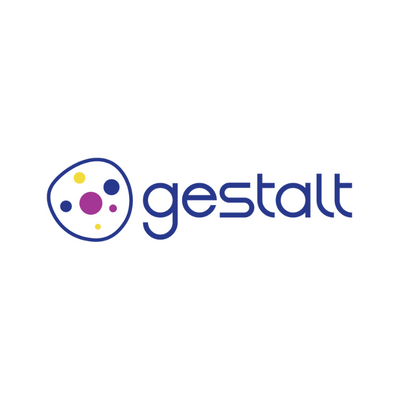
Dear Clients, Partners, and Friends, As we close out 2024, I want to take a moment to reflect on the incredible milestones we’ve achieved together. At Gestalt Diagnostics, we remain committed to advancing digital pathology and supporting our clients in delivering the highest level of patient care. This year has been a remarkable journey, and I’m proud to share some highlights with you. Innovations and Product Enhancements This year, we introduced the PathFlow® AI Algorithm Evaluator , a tool enabling labs to test and integrate multiple AI algorithms seamlessly into workflows, driving precision and efficiency. We also expanded our Digital Pathology Education Module to include proficiency testing, credentialing, and management tools, empowering professionals with critical resources for growth. Thought Leadership and Industry Contributions Our team shared valuable insights through leading journals and platforms: Published in Medical Laboratory Observer on preparing labs for automation with digital pathology and AI . Shared findings on biomarkers in prostate cancer diagnosis and digital pathology adoption in MLO. Hosted engaging discussions like the Digital Pathology Today Podcast: A Fresh Start for Pathology and a Q&A on enhancing clinical labs through advanced data analytics. Strategic Partnerships and Collaborations We strengthened our partnerships globally, adding several AI integrations into PathFlow®. Notably, we were selected by Optum (Change Healthcare) as their digital pathology partner, complementing their Enterprise Imaging Suite. We also expanded into Africa with DataPathology , marking a key step in our international growth. Recognition and Advisory Excellence This year, we welcomed Dr. J. Mark Tuthill to our Strategic Advisory Board, whose expertise has already brought immense value to our mission. Our leadership team also took on influential roles, with elections as President-Elect of the API and as Co-Chairs of DICOM Working Group 26, further contributing to global pathology standards. Global Impact and Market Growth Gestalt celebrated substantial growth, increasing our customer base and revenue while earning accolades for innovation and market expansion. These achievements reflect our dedication to pushing the boundaries of digital pathology and delivering meaningful results for labs worldwide. As we step into 2025, I am filled with excitement and gratitude. Thank you for your trust, collaboration, and commitment to advancing pathology alongside us. Together, we are shaping the future of this vital field. Wishing you success and innovation in the year ahead,
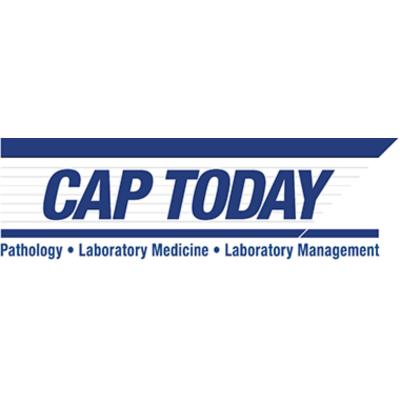
Featured in CAP TODAY December 2024—Digital pathology in 2024—what’s the sentiment, the pace, the holdup, the worry? Five people spoke online with CAP TODAY publisher Bob McGonnagle on Oct. 9 about the state of play as the end of the year neared. “It’s an ongoing conversation and foregone conclusion that laboratories will be going digital,” said Lisa-Jean Clifford, president-elect of the Association for Pathology Informatics.
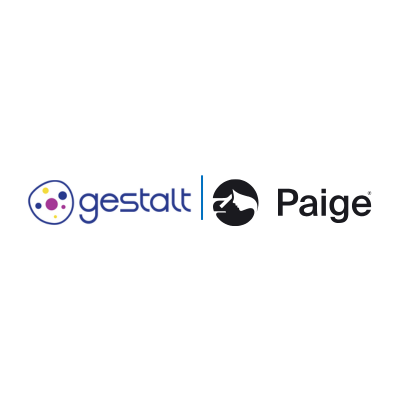
October 31, 2024 – Spokane, Washington and New York, New York – Gestalt, a leader in digital pathology solutions, and Paige, the leader in next-generation AI technology for pathology, are excited to announce a strategic partnership to integrate Paige’s advanced AI applications within Gestalt’s award-winning PathFlow® solution. This collaboration aims to streamline the delivery of integrated workflows, optimizing the pathologist’s experience while ensuring patient accuracy and safety by working in a single environment. Gestalt’s PathFlow is widely recognized for its robust capabilities in primary diagnosis, education, resident training, and research workflows. By incorporating Paige’s cutting-edge algorithms, the PathFlow solution will now offer an even broader range of tools to support pathologists in delivering precise and efficient diagnoses. All of Paige’s AI applications will be made available in PathFlow, enabling both current and new users to seamlessly access AI-powered diagnostic capabilities. This integration supports more efficient case reviews, accelerates diagnostic timelines, and promotes a comprehensive approach to cancer detection. Key Highlights of the Partnership: Enhanced Diagnostic Confidence: The integration of Paige’s AI applications will provide pathologists with powerful tools to improve diagnostic confidence and patient outcomes. Streamlined Workflows: The combined technologies will ensure seamless workflows, reducing the time and effort required for pathologists to reach diagnoses. Comprehensive Support: PathFlow’s expanded algorithm library will cater to a wide range of use cases, benefiting both current and future customers. Paige’s availability through PathFlow’s platform will allow easy access to Paige AI solutions for any Gestalt user. “By partnering with Paige to include their AI applications in PathFlow, we are reinforcing our commitment to providing pathologists with the best tools available,” said Lisa-Jean Clifford, COO & Chief Strategy Officer of Gestalt. “This partnership underscores our dedication to enhancing the pathologist’s experience and ensuring the highest standards of patient care.” “Leveraging Paige's AI-powered applications, PathFlow users can experience an enhanced workflow that supports efficient case review, accelerates time to diagnosis, and allows for a more comprehensive approach to cancer detection, enabling pathologists to focus on what matters most—delivering precise and actionable insights for patient care,” said Peter Hamilton, General Manager for Diagnostics at Paige. For more information about this partnership and the respective solutions, please visit Gestalt at booth #107 and Paige at booth #113 during the Pathology Visions Conference November 3-5, 2024. About Gestalt Gestalt Diagnostics transforms pathology through an intelligent, configurable, vendor-neutral, and AI-driven digital workflow that provides true interoperability enabling pathologists to diagnose* diseases faster and more efficiently. Our PathFlow solution consists of professional, education, and research modules for ease of mixing and matching the digital needs of your facility in a single solution, freeing pathologists from tedious, repetitive, and manual tasks, allowing them to focus on their expertise – providing invaluable experience where it matters most. To learn more, visit www.gestaltdiagnostics.com and follow @Gestalt on LinkedIn About Paige Paige is pushing the boundaries of AI to solve cancer’s most critical issues, revolutionizing cancer care with next-generation technology. By leveraging exclusive access to millions of digitized pathology slides, clinical reports, and genomic data, Paige gains a holistic understanding of cancer, encompassing diverse factors such as gender, race, ethnicity, and geographical regions. This comprehensive data enables Paige to create advanced AI solutions that redefine cancer detection, diagnosis, and treatment. With a unique, intricate understanding of tissue, Paige sets new standards in precision diagnostics, earning the distinction of being the first FDA-approved AI application in pathology. Paige has also developed the first million-slide foundation model for cancer, continuing to lead the way in uncovering novel insights and transforming them into life-changing products. For more information, visit www.paige.ai. *Research use only unless following CAP guidelines for LDT. CE-IVD certified for use in Europe.

September 16, 2024 – Spokane, Washington – Gestalt, a leader in AI-driven digital pathology solutions, is excited to announce its international expansion with the onboarding of its first client in Africa, DataPathology. This partnership marks a significant milestone as Gestalt continues to extend its global footprint, leveraging its innovative PathFlow digital solution with the new PathCloud platform to provide streamlined cloud-based digital access. DataPathology, a pioneering MedTech startup, operates five laboratories across Morocco and Djibouti. This collaboration aims to create a robust ecosystem that addresses two critical challenges in North Africa: the severe shortage of anatomic pathologists and the accessibility to specialized medical expertise. Addressing the Pathologist Shortage Africa faces a daunting shortage of pathologists, with an estimated ratio of 1 pathologist per 500,000 people. Given the continent’s population of approximately 1.2 billion, this translates to around 2,400 pathologists. In stark contrast, the United States boasts about 22,000 pathologists, resulting in a ratio of 1 pathologist per 15,000 people. This disparity underscores the urgent need for innovative solutions to bridge the gap in medical diagnostics and care. Enhancing Accessibility to Medical Expertise Through the integration of Gestalt’s PathCloud platform and the 3DHistech and Roches scanners, DataPathology will be able to connect its laboratories seamlessly, facilitating the rapid and accurate diagnosis of pathological samples. This technological advancement not only enhances the efficiency of diagnostic processes but also ensures that patients in remote and underserved regions have access to high-quality medical expertise. A Vision for the Future “We are excited to partner with DataPathology and bring our leading-edge technology to Africa,” said Lisa-Jean Clifford, COO & Chief Strategy Officer of Gestalt. “This collaboration is a testament to our commitment to improving healthcare accessibility and addressing critical shortages in medical expertise. Together, we aim to revolutionize the field of pathology and make a significant impact on patient care in North Africa.” DataPathology’s co-founder, Dr. Hicham El Attar, added, “Our partnership with Gestalt is a game-changer for pathology services in Morocco and Djibouti. By leveraging advanced digital pathology solutions, we can provide faster, more accurate diagnoses, ultimately improving patient outcomes and saving lives.” About DataPathology Founded in 2020, DataPathology is a MedTech startup specializing in pathology diagnostics. With a network of laboratories across Morocco and Djibouti, the company leverages artificial intelligence and digital technology to provide quick and accurate pathological diagnoses, addressing critical healthcare challenges in Africa. Gestalt Diagnostics, Inc. Gestalt Diagnostics transforms pathology through an intelligent, configurable, vendor-neutral, and AI-driven digital workflow that provides true interoperability enabling pathologists to diagnose diseases faster and more efficiently. Our PathFlow solution is a cloud-based digital pathology enterprise platform that can easily be customized based on your specific preferences. Our platform consists of professional, education, and research modules for ease of mixing and matching the digital needs of your facility in a single solution, freeing pathologists from tedious, repetitive, and manual tasks allowing them to focus on their expertise, providing invaluable expertise where it matters most. *Research use only unless following CAP guidelines for LDT. CE-IVD certified for use in Europe.
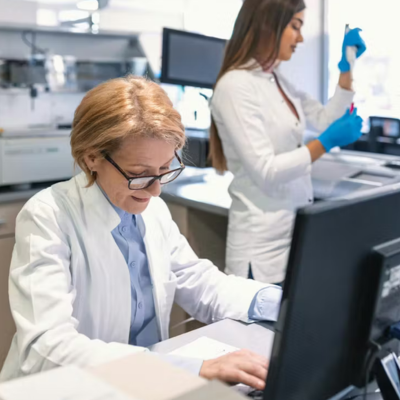
Featured in Medical Laboratory Observer - MLO Written By Lisa-Jean Clifford Incorporating digital pathology and AI solutions and workflows into your organization is an exciting opportunity to enhance your operational efficiency, positively impact your diagnostic accuracy, and increase the overall automation of your laboratory practice. It is essential for maintaining your competitive position in the industry with adoption of leading technology occurring at an ever-increasing rate. It is also important to understand your current technology infrastructure and workflows and to work closely with your digital pathology solution provider to ensure that you are taking full advantage of the benefits of deploying these technologies —both today and setting the foundation for further adoption of new technologies into the future. Things to consider 1. Understand your initial goals and your long-term goals. These two may be the same or very different, depending upon your adoption strategy and reasons. The most common goals for digital pathology solution adoption in the clinical setting today are: Reduce the need for transportation of glass between labs Access to geographically distributed facilities and pathologists The ability to recruit and retain pathologists Support the technical component (TC), professional component (PC), and global workflows for outreach clients Instant access to consultations for subspecialties and/or complex cases Tumor boards The ability to use artificial intelligence When considering the above, you may have one or more initial reasons or objectives in adoption with the understanding that you would like to achieve more of these goals, or additional ones, moving forward. 2. The implementation of digital pathology needs to be an organizational goal and not just one of the lab’s. The process starts with the technical side of the workflow — from the understanding of what the scanner(s) you choose to deploy require for ‘clean’ slides. This is something that can have a significant impact on the usability, speed, and value of digital. You must start with proper identification of your lab process for creating slides and know that things like misaligned slipcovers, smudges, fingerprints, substances on the glass, folds in tissue, bubbles, and other artifacts are going to cause scanned images (WSI’s) to be unusable. This will create inefficiencies and increased time by having to redo and rescan slides in order to get usable images to the pathologists. This is the first step in quality in, quality out.... Read More

